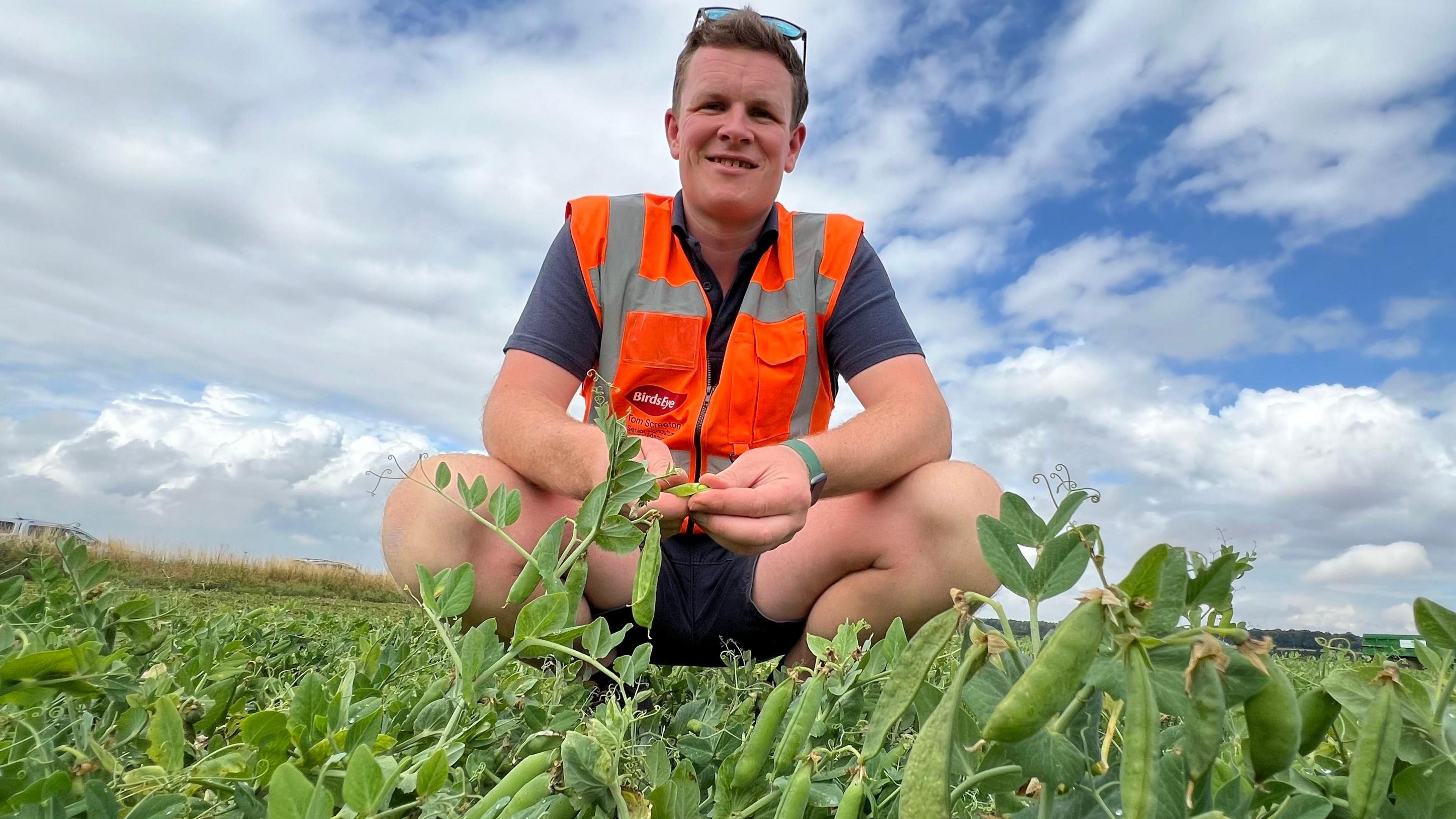Expect smaller broccoli if heatwave continues, farmers warn
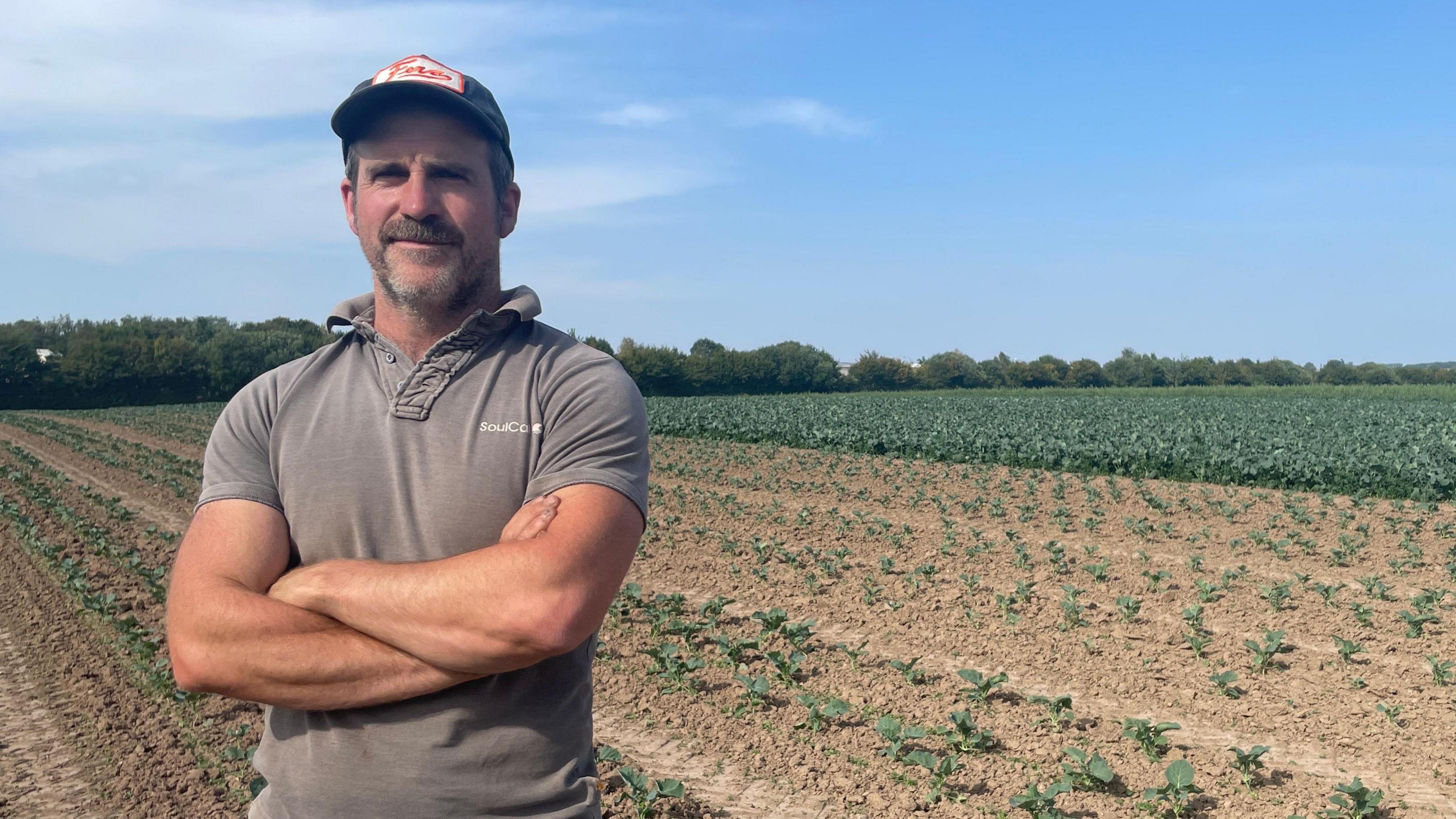
Some farmers in the driest parts of the UK are finding their broccoli yields are down more than half
- Published
Farmers in the driest parts of the UK are facing some of their worst ever harvests as the heatwave continues to hit crop and vegetable yields.
Broccoli growers are particularly struggling with a lack of water and bone-dry soils, with yields cut by more than 50%, quality affected and shoppers warned to expect smaller vegetables on the shelves.
One Herefordshire grower told the BBC there could be supply shortages if sustained rainfall does not come soon.
The British Growers Association said supplies of brassicas – including broccoli, cauliflower and cabbage - were "tight" but better harvests in wetter parts of the UK should ensure vegetables still make it to the supermarkets.
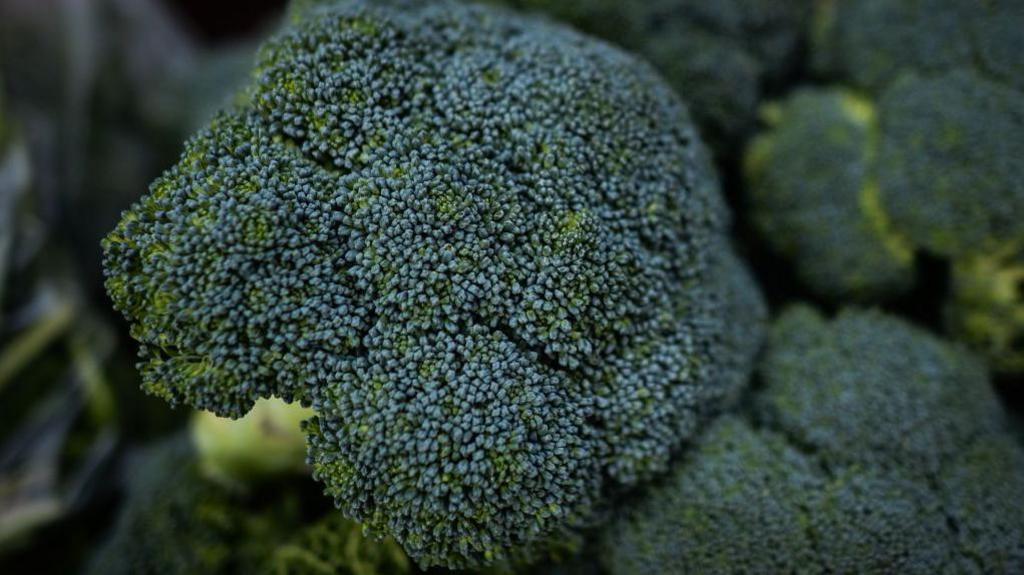
Broccoli farmers in the cooler, wetter parts of the UK are seeing better harvests
The Energy and Climate Intelligence Unit (ECIU), an independent think tank, is now warning that the UK is on course to see its sixth or seventh worst harvest since records began 40 years ago.
Although the overall harvest picture is mixed across the UK, farmers in parts of the country that have seen little rain and have low river levels - and who are growing produce in lighter, drier soil that does not hold moisture well - are seeing substantial shortfalls.
Ben Andrews, who has a mixed organic farm growing broccoli near Leominster, Herefordshire, told the BBC that shoppers will have to "shift their expectations" about the size and shape of the vegetables in supermarkets.
He added, as it was also too hot for brassicas to be grown abroad and imported to the UK, there could also be issues with shortages.
"You'll be looking at maybe not quite as much availability and maybe needing to accept smaller heads of broccoli or lettuce or cabbage.
"I'm not sure quite about shelves being empty, but if this continues it's not completely impossible," he said.
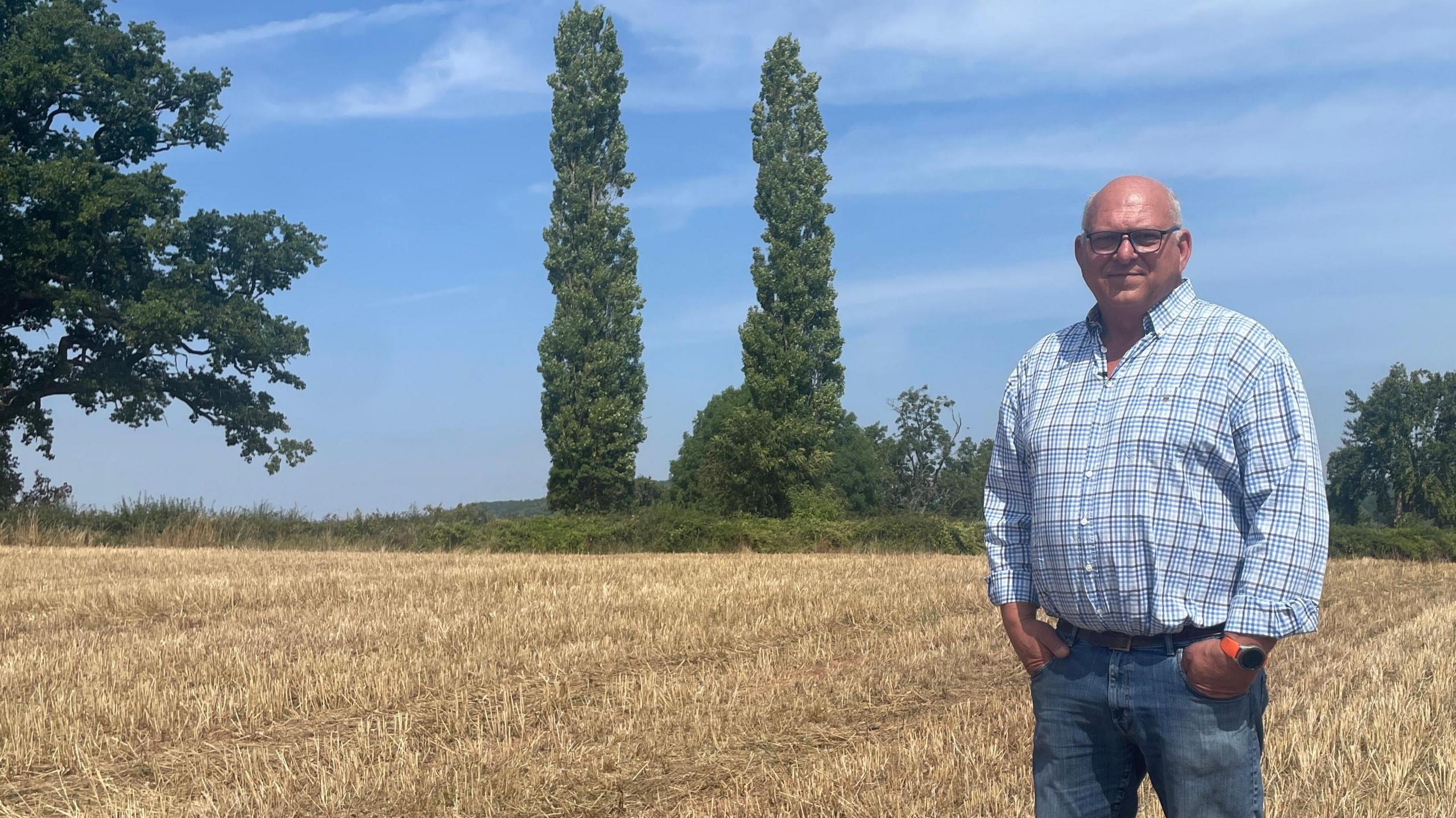
Martin Williams says he is now reconsidering what he grows thanks to a "devastatingly dry" season
The British Growers Association (BGA) said this summer was "proving to be yet another climatic challenge for growers", but shortfalls from some suppliers were being mitigated by producers growing more crops in areas that have seen lower temperatures and higher rainfall.
Jack Ward, the BGA's chief executive, said: "In some areas, supplies of summer brassicas, cauliflowers and cabbages are tight.
"Other root crops, carrots and onions have been kept going by the use of irrigation, but there are serious concerns about water supplies if the lack of rain continues.
"At this stage, we are confident that the crops will be there, but the weather events of the last three months highlight the increasing uncertainty around our food supplies."
Meanwhile, arable farmer Martin Williams, who is also the chairman of the National Farmers' Union (NFU) Herefordshire branch, said he had seen a 50% drop in his cereal yield, a third of the normal potato crop was likely, and there had been a 70% drop in the grass grown for feed.
He said conditions had been "absolutely, devastatingly dry" and he is now considering how and what he should farm in the future
"Going forward, it makes me wonder about the viability of growing cereal commodity crops.
"It is a risk-based job but if I can manage my risk down by not growing those risky crops then maybe that's something I should look at," he said.
'Hugely varied' harvest
The National Farmers' Union (NFU) said the extremes of weather conditions this year had been "unprecedented", with the overall harvest picture currently "hugely varied".
Jamie Burrows, chairman of the NFU's crops board, said that farmers in areas that had seen rainfall were actually seeing "better-than-expected" yields, while others are "facing significant drops which will have substantial financial implications on their businesses".
Tom Lancaster, the ECIU's head of land, food and farming, said successive years of extreme weather, both wet and dry, were taking its toll on farmers.
He told the BBC: "I don't think we should look at this year just in isolation. This is part of a pattern, coming off the back of the second worst harvest last year and the worst harvest on record in 2020.
"It's that pattern we need to be concerned about because, as these impacts on agriculture and on farmers start to stack up, farmers will just effectively stop farming."
- Published4 August
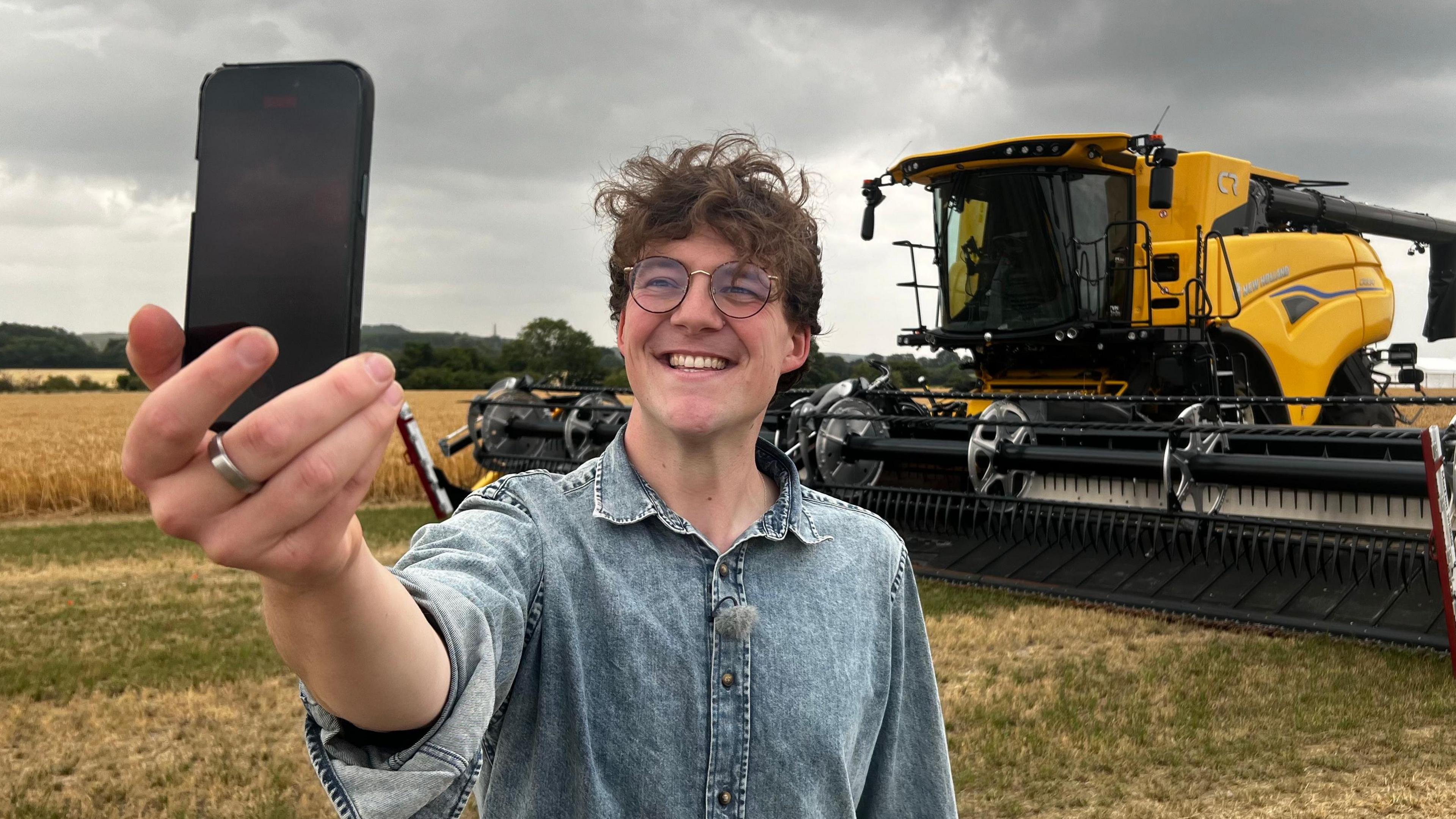
- Published13 August
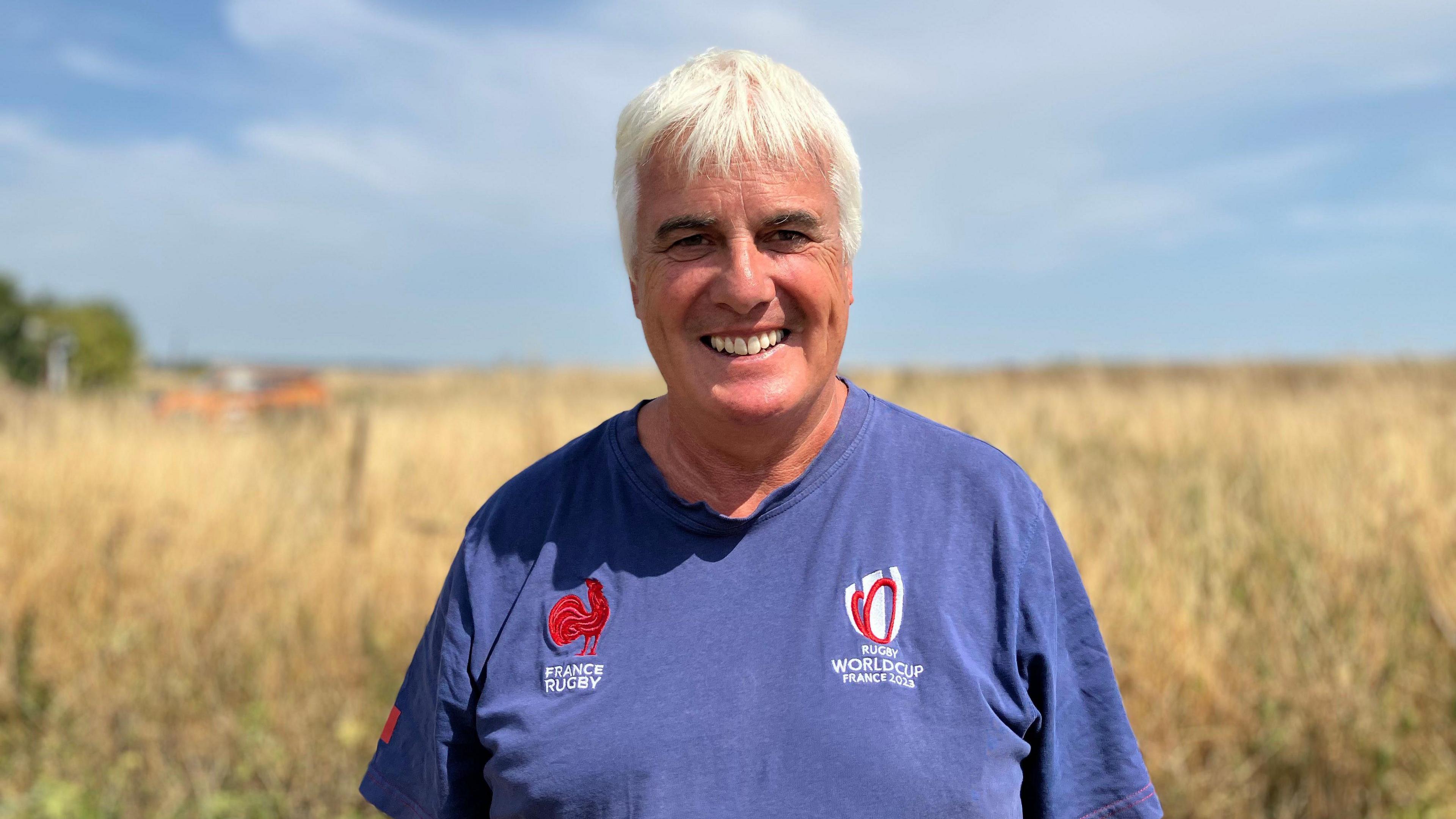
- Published30 July
